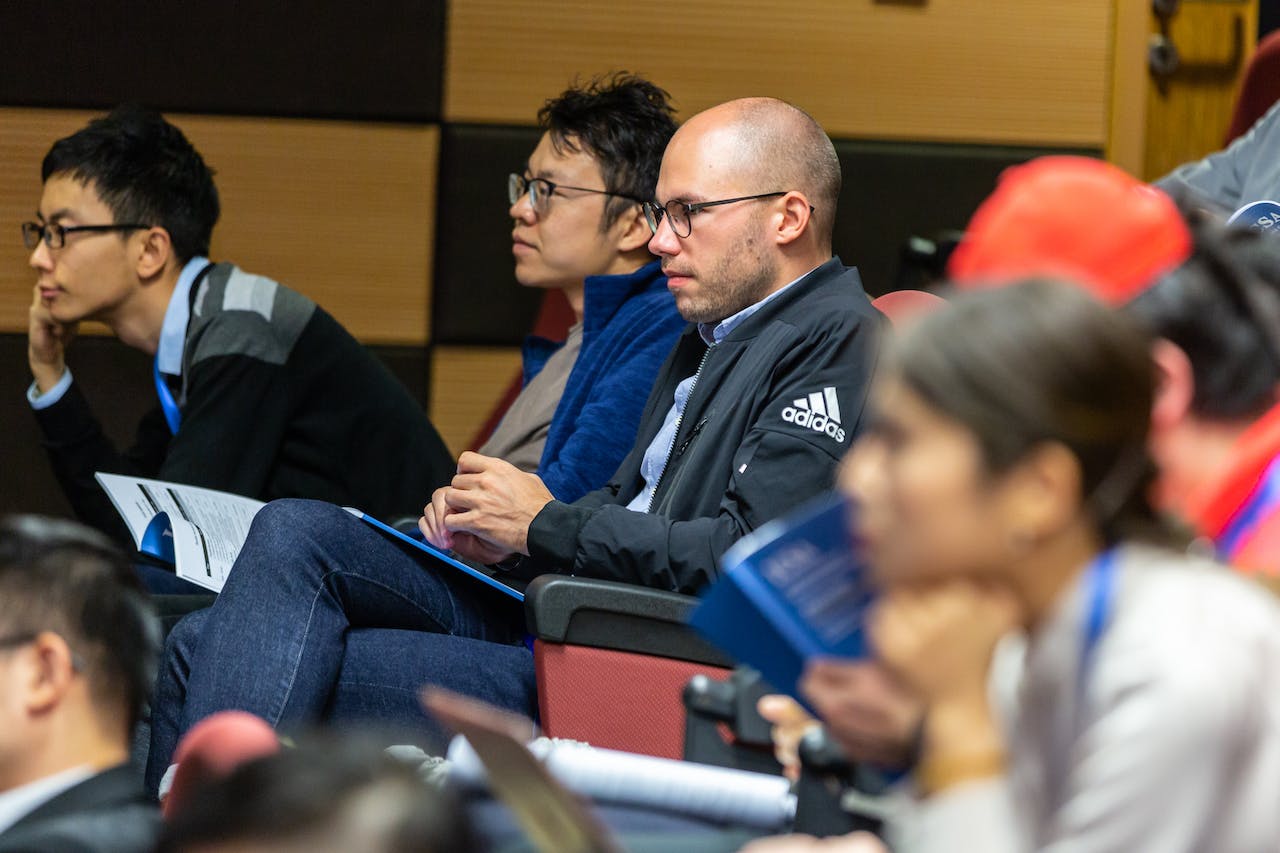
Engaging Generation Z: Trends Shaping US University Recruitment
- Last Updated - 04/14/2024 - 11:54 AM
- Study in USA

In the rapidly changing digital world in the 21st century colleges and universities all over the United States are facing a new issue: attracting and engaging Generation Z, the generation born between the mid-1990s in the early decade of 2010. With distinctive preferences, values, and expectations, Generation Z offers unique challenges and opportunities for institutions of higher education. Join us as we look at the most recent patterns regarding US university recruitment and engagement, as well as learn about how universities are changing to meet the ever-changing requirements of the rapidly changing generation.

Accepting Authenticity Achieving the Strength of Personal Connection
In a time of doubt and overload of information, Gen Z craves authenticity and transparency from the institutions they work with. The universities are focusing more on establishing genuine relationships with potential students via personal communication interactive campus tours students-led campaigns on social media. By showcasing the distinctive traditions, values, and opportunities that are the hallmarks of their schools, they are creating meaningful connections that are in tune with Generation Z’s need for authenticity.
Digital First: Using Technology to Engage and Reach
Growing up in the age of digital, Gen Z is inherently technologically savvy and digitally proficient. In recognition of this fact, institutions are using strategies for digital recruitment to reach and attract prospective students where they are, online. Through virtual tours of campus interactive webinars personalized emails and social media advertisements universities are harnessing technology to create engaging and immersive experiences that draw the attention and curiosity of Gen Z students.
Holistic Admissions: Going beyond GPAs and Test Scores
Contrary to the earlier generations Gen Z values diversity equality, fairness, and inclusion throughout all aspects of their lives and even in the admissions process to college. Universities are embracing holistic admissions strategies that take into account a wider range of variables beyond GPAs and test scores, like extracurricular pursuits, volunteer work as well and personal essays. In adopting a more comprehensive approach, they are making sure that admissions processes are fair and equal, and reflect the diversity of capabilities and perspectives that comprise Gen Z students.
Flexible learning options: Addressing the needs of a diverse Generation
Being the first generation to live in a world of online and remote learning educational opportunities, Gen Z values flexibility and independence in their learning. Universities are responding by providing an array of educational choices, such as hybrid and online courses with competency-based education as well as the opportunity to learn through experience. Through flexible paths towards a degree, they meet the various requirements and desires of Gen Z students, who appreciate the flexibility to tailor their educational experience to suit their own goals and preferences.
Connection and Community: Creating Belonging in the Digital World
Despite their technological prowess Gen Z craves meaningful connections and an experience of belonging to colleges. They are spending money on initiatives to create a sense of community and connections between students, both on as well and offline. These range from virtual social events to student forums on the internet, to programs for mentorship as well as campus affinity groups universities are creating places where Gen Z students can connect to collaborate, share ideas, and develop connections that go beyond the confines of the classroom.
Conclusion: How to navigate the Future of Higher Education
As universities traverse the ever-changing world that is higher education, adjusting to the demands and needs that are exhibited by Generation Z is essential. By taking a stand for authenticity, leveraging technology, implementing more holistic admissions strategies, offering flexibility in learning, and encouraging connections community institutions can establish themselves as the preferred institution that cater to Gen Z students seeking a personal and transformative education. Together, let’s be open to the challenges and opportunities that come with engaging Generation Z and create our future in higher education for the generations to come.
You might like these..
Randomly chosen articles that you might like.

Cultivating Change: The Vital Role of Universities in Promoting Sustainability and Environmental Consciousness
Universities play an integral role in shaping the beliefs behavior, values, and behaviors of the next generation. In an age of

Best Data Science Course Online in India 2024
Introduction: Data is now the currency of innovation and progress in the age of digitization. A record of every transaction, click,

The Pinnacle of Education: Why USA Universities Stand Out Globally!
In the vast landscape of higher education, USA universities emerge as beacons of excellence, attracting students from every corner of

Choosing the Best University in USA: A Guide to Select the Top USA Universities.
Choosing the best University in USA is a crucial choice that will have a big impact on your educational journey

How to Apply to Any University in USA, Super easy, very simple, and effective.
You can successfully navigate the application process to University in USA with a little planning and attention. Here is a guide

Anyone from India can apply to USA Universities. Yah! It’s easy.
Yes, individuals from India can certainly apply to USA Universities. The application process for U.S. universities can be competitive and

USA Universities are great in terms of Sports as well as education. Yes, You heard it right!
The perception that USA Universities are great in terms of education and sports is shaped by several factors. Here are

Best Universities in USA, You can apply. Yes, it’s correct.
Determining the Best Universities in USA can depend on various factors such as academic programs, faculty expertise, resources, location, and

USA Universities are not good, Is this correct? discuss.
USA Universities are home to many prestigious universities and research institutions that are globally recognized for their academic excellence and

How to apply at Top Universities 2023, follow these steps.
Applying to Top Universities 2023 in USA typically involves several steps. Here’s a general guide to help you through the

You should not do this If you get a chance to USA university. Try them now!
Starting university in a new country, especially the United States, can be an exciting but challenging experience. Here are some

Most Common Mistakes while searching for a new University in the USA, Stay Safe.
While searching for University in the USA, students may make common mistakes that can impact their decision-making process and overall

Why does everyone blindly trust Universities in USA?
While it may not be accurate to say that everyone blindly trusts Universities in USA, there are several reasons why

USA Universities are not good! Says the expert, is that correct?
Certainly! Here’s a more detailed exploration, broken down into Reality of USA Universities, to provide a comprehensive understanding of the

Why and how USA universities become so Popular? Something wrong here.
The popularity of USA Universities can be explained in simple terms through a variety of factors. Let’s break it down:

New Academic Updated! USA Universities are not evolving?
USA Universities are constantly innovating and developing new academic programs to meet the evolving needs of students and the demands




